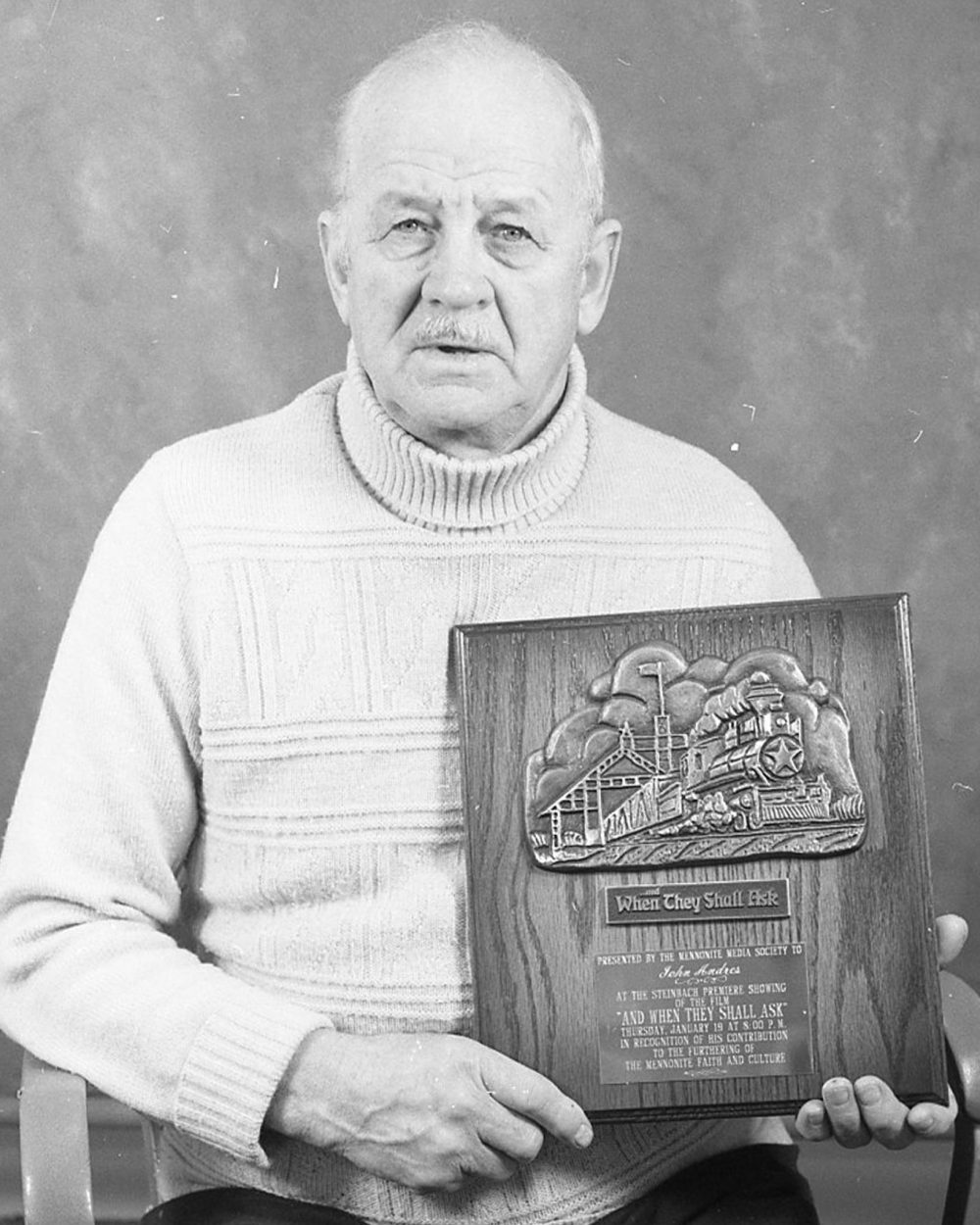COLUMN: Carillon Flashback March 6, 1985 – Dueck wins award for Mennonite documentary
Advertisement
Hey there, time traveller!
This article was published 25/08/2024 (430 days ago), so information in it may no longer be current.
The Winnipeg producer of a movie about Mennonites, including scenes shot at the Mennonite Heritage Village in Steinbach and in Russia, has been awarded a Silver Angel at the Angel Awards dinner in Beverly Hills, California.
David H. Dueck, producer of And When They Shall Ask, was unable to attend to accept the award in person but his documentary about the persecution and migration of Mennonites from Russia to Canada was cited before the Hollywood crowd for excellence in religious and moral, quality and for “bringing higher values into the media.”
The 90-minute film, shot almost entirely in Manitoba, was entered in the same category as two popular, big-budget movies, both nominated for an Academy Award as best picture of the year. Places in the Heart and A Soldier’s Story each received a Gold Angel, tying for first place in the eighth annual Angel Awards competition.

And When They Shall Ask premiered in Winnipeg in November, 1983 and has been screened several times in the city, as well as in Steinbach, Landmark, Grunthal and Niverville. Many sellout crowds viewed the film when it was shown across Canada and the United States. Videotaped copies are available for sale, but upcoming screenings on television and in movie theatres have not yet been scheduled by Dueck Film Productions.
Last year, the film won a Silver Screen award at a Chicago International Film Festival. It has also been entered in the American Film Festival in the religion and society category.
The filming of the $500,000 documentary took Dueck and his crew to California and Russia to complete shooting. Some scenes were filmed at the Mennonite Heritage Village in Steinbach, while others were taken at a railway crossing near Anola.
For many of the scenes shot in Steinbach and Anola, the filmmaker used 100 local volunteer actors, with little acting experience, including the miller at the Mennonite Heritage Village windmill.
Former Steinbacher Clint Toews portrayed two different characters in the movie, singing German songs.
The film presented a narrow slice of the Mennonite experience, chronicling the chapter of Mennonite history from the time of Catherine the Great’s invitation in 1788 for Mennonites to live in peace in Ukraine, up to a Mennonite church service in Karanganda, USSR in 1983.
During a tour of the film in the United States last spring the producer discussed the impact of his film with General Conference news director Larry Cornles.
Dueck said looking at the film in retrospect; its most significant accomplishment is that it has raised the consciousness of the Mennonite community to the film medium as such.
“I think we have helped make our people aware that the medium of film can combine the elements of entertainment, information and inspiration.
“The opportunity we had to go to the Soviet Union for some of the filming elevated the film to another level.”
Dueck went on to say that two years earlier it would not have been possible to film the church service in Karaganda because the technology to work in those low-light situations would not have been available to them.
After finishing the swing of showings in the United States, Dueck said they would be exploring the idea of taking And When They Shall Ask to regular movie theatres and to television.
“We have had encouragements from the Canadian Broadcasting Corporation and the British Broadcasting Corporation, as well,” he said.
The film will soon be available through church rental agencies and for sale on videotape, Dueck added.
